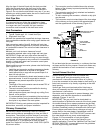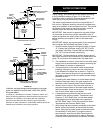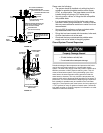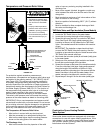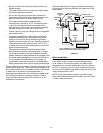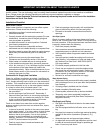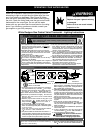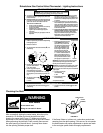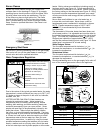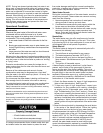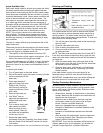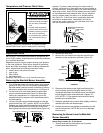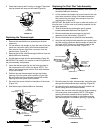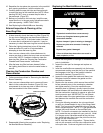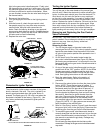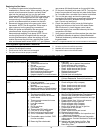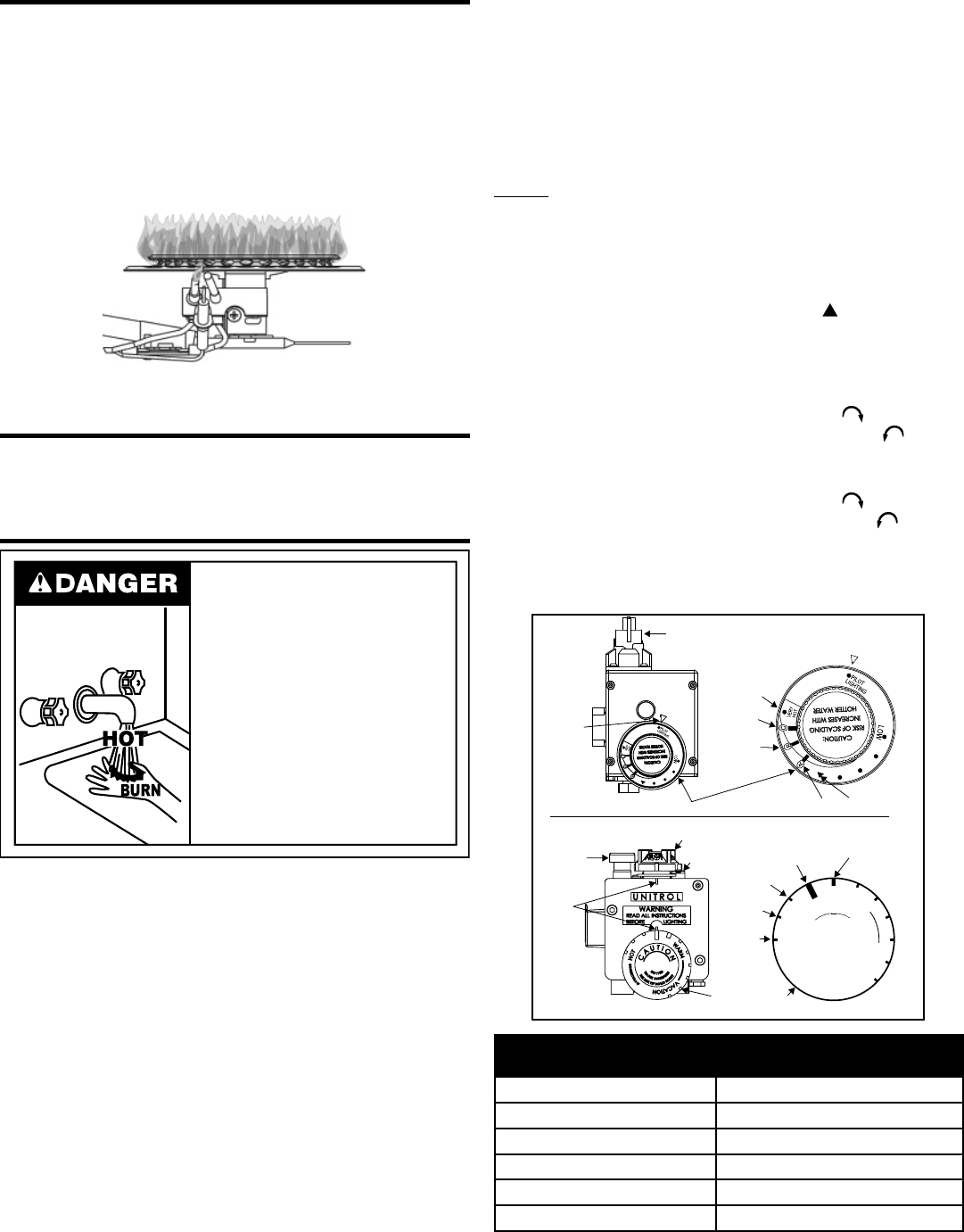
22
Burner Flames
Inspect the burner flames through the viewport and
compare them to the drawings in Figure 18. A properly
operating burner should produce a soft blue flame. Blue
tips with yellow inner cones are satisfactory. The tips
of the flame may have a slight yellow tint. The flame
should not be all yellow or have a sharp blue-orange
color. Contaminated air may cause an orange colored
flame. Contact a qualified technician if the flame is not
satisfactory.
FIGURE 18.
Emergency Shut Down
IMPORTANT: Should overheating occur or the gas supply
fails to shut off, turn off the water heater’s manual gas
control valve and call a qualified technician.
Water Temperature Regulation
Water temperature over 125°F (52°C)
can cause servere burns instantly
resulting in severe injury or death.
Children, the elderly, and the
physically or mentally disabled are at
highest risk for scald injury.
Feel water before bathing or
showering.
Temperature limiting valves are
available.
Read instruction manual for safe
temperature setting.
Due to the nature of the typical gas water heater, the water
temperature in certain situations may vary up to 30°F (16.7
°C) higher or lower at the point of use such as, bathtubs,
showers, sink, etc.
HOTTER WATER CAN SCALD: Water heaters are
intended to produce hot water. Water heated to a
temperature which will satisfy space heating, clothes
washing, dish washing, and other sanitizing needs can
scald and permanently injure you upon contact. Some
people are more likely to be permanently injured by hot
water than others. These include the elderly, children,
the infirm, or physically/mentally handicapped. If anyone
using hot water in your home fits into one of these groups
or if there is a local code or state law requiring a certain
temperature water at the hot water tap, then you must
take special precautions. In addition to using the lowest
possible temperature setting that satisfies your hot water
needs, a means such as a mixing valve, should be used
at the hot water taps used by these people or at the water
heater. Mixing valves are available at plumbing supply or
hardware stores, see Figure 14. Follow manufacturer’s
instructions for installation of the valves. Before changing
the factory setting on the thermostat see Figure 19. Using
the lowest hot water temperature that meets your needs
will also provide the most energy efficient operation of the
water heater.
Never allow small children to use a hot water tap, or
to draw their own bath water. Never leave a child or
handicapped person unattended in a bathtub or shower.
NOTE: A water temperature range of 120°F-140°F
(49°C-60°C) is recommended by most dishwasher
manufacturers.
The thermostat of this water heater has been factory set
at its lowest position. It is adjustable and must be reset to
the desired temperature setting to reduce the risk of scald
injury. The index bar (Robsertshaw) and mark (White
Rodgers) are indicative of approximately 120°F (49°C)
and are the preferred starting points, see Figure 19. Some
states have a requirement for a lower setting.
White Rodgers Valves:
Turn the water temperature dial clockwise (
) to
decrease the temperature, or counterclockwise ( ) to
increase the temperature.
Robertshaw Valves:
Turn the water temperature dial clockwise (
) to
increase the temperature, or counterclockwise ( ) to
decrease the temperature.
Should overheating occur or the gas supply fail to shut off,
turn off the manual gas control valve to the appliance.
C
A
U
T
I
O
N
W
A
T
E
R
I
N
C
R
E
A
S
E
S
H
O
T
T
E
R
T
H
E
R
I
S
K
O
F
S
C
A
L
D
I
N
J
U
R
Y
V
A
C
A
T
I
O
N
W
A
R
M
H
O
T
RESET
BUTTON
GAS CONTROL KNOB
DIAL
STOP
INDEX
BARS
TEMPERATURE DIAL
ROBERTSHAW GAS VALVE
120°F
130°F
140°F
150°F
160°F
INDEX BAR
TEMPERATURE DIAL
160°F
WHITE RODGERS GAS VALVE
GAS CONTROL KNOB
(OFF-PILOT-ON)
150°F
140°F
130°F
120°F
Temperature
Settings
Time to Produce 2nd & 3rd
Degree Burns on Adult Skin
160°F (71°C)
About 1/2 second
150°F (66°C) About 1-1/2 seconds
140°F (60°C) Less than 5 seconds
130°F (54°C) About 30 seconds
120°F (49°C) More than 5 minutes
80°F (27°C) - - - - - - - - - - - - - - - -
FIGURE 19.



